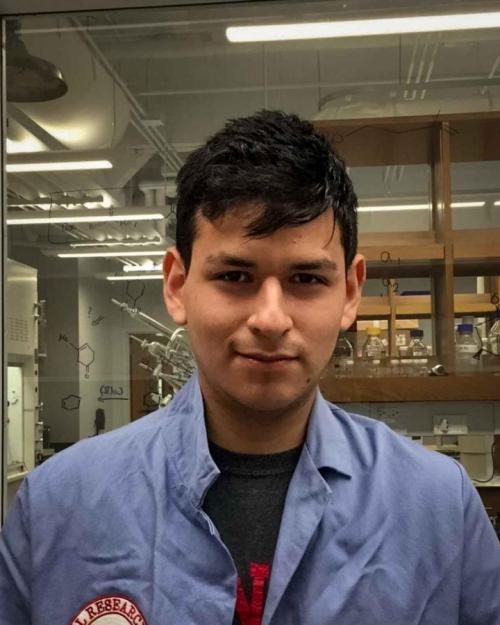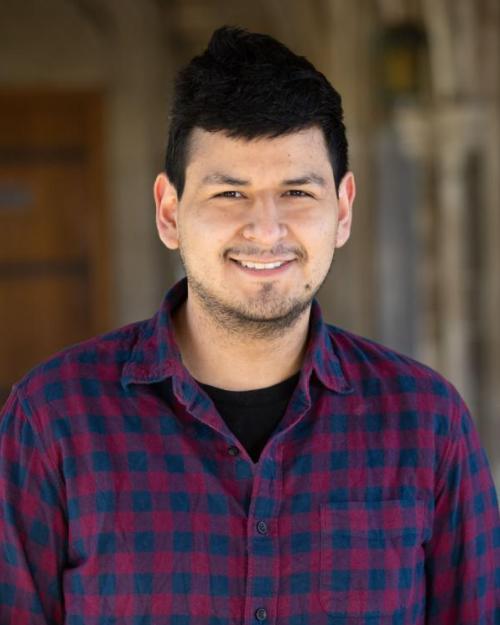Jose Mondragon
Chemistry & Chemical Biology
Lima, Peru
What are the most valuable skills you gained from your Arts & Sciences education?
The most valuable skill I learned as an Arts & Sciences student is to always pursue my interests, but have an open mind for new experiences. The selection of courses offered by the College is extensive and after I ended up developing an interest in language learning thanks to my introductory Japanese class, I decided to take every opportunity to explore classes I was interested in even if they didn't correlate with my major. Exploring my curiosities allowed me to discover new interests I never knew I had and connected me with many new people.
What is your main extracurricular activity and why is it important to you?
Research allowed me to expand on the concepts learned in class and get a firsthand experience at working in academia. I was involved in two years of research with Professor Song Lin conducting organic synthesis, and I have now been working for nearly a year with Professor Wolczanski on organometallic projects. Thanks to the invaluable guidance provided by my graduate student mentors, as well as my advisors, I learned to actively immerse myself in the literature as a way of staying involved with the field and was given the opportunity to hone my abilities as a researcher, which I hope to continue doing in graduate school.
How have your beliefs or perspectives changed since you first arrived at Cornell? What have you discovered about yourself?
When I first came to Cornell, I used to think that if I worked hard enough I could manage to do everything on my own. As the semesters went on, the course material became more difficult and it reached a point where for certain assignments this was too much for one person, so I decided to start going to friends for help. I began to realize just how important group work was then, because it allowed for greater productivity and even taught me concepts and ideas I never considered before. Compared to my freshman perspective, I've developed a great appreciation for collaboration since it is a key practice that is seen very often in industry and academia.
Who or what influenced your Cornell education the most? How or why?
My research advisors and my graduate student mentors were the most important aspect of my education at Cornell — without their invaluable guidance I would not be the student nor researcher I am today. There are two main concepts that I am grateful for learning since I started my career as a researcher. The first was accepting failures in lab as part of my learning experience because what is important is the conclusions I can draw from those failures. The second was to transition from just learning from course materials to checking online journals from time to time for new publications because in academia this is the most active way of learning. These lessons have had the biggest impact on me and I hope to continue applying them in the future.
Every year, our faculty nominate graduating Arts & Sciences students to be featured as part of our Extraordinary Journeys series. Read more about the Class of 2022.





